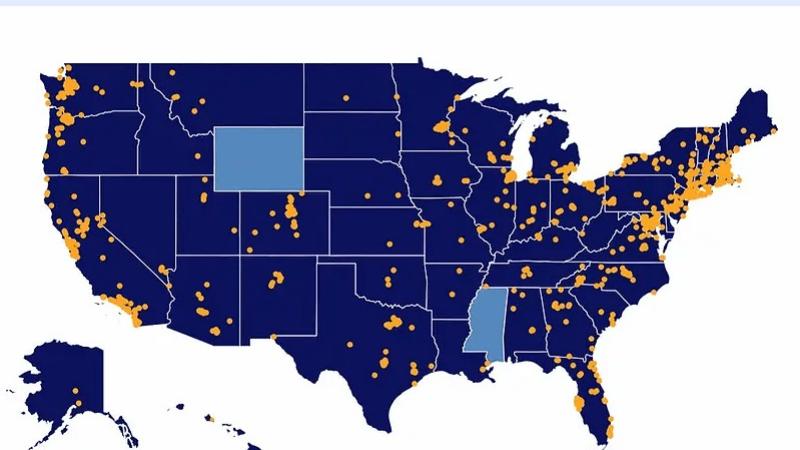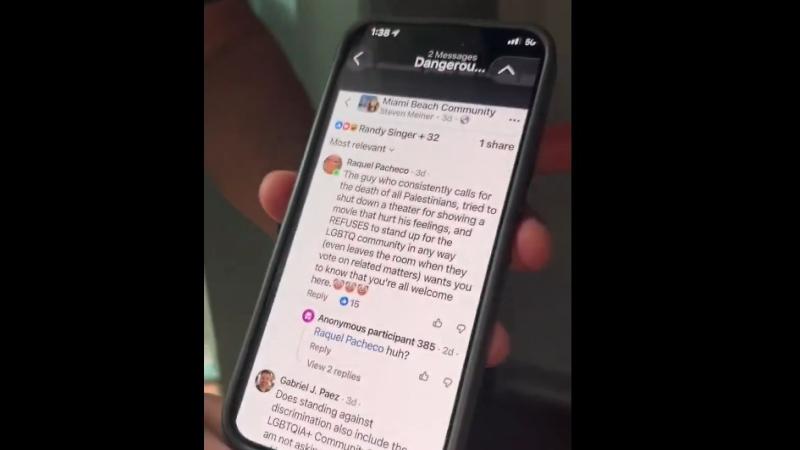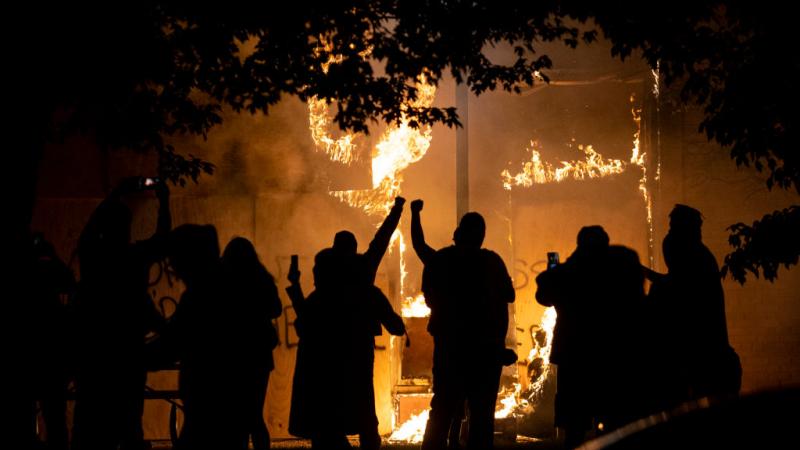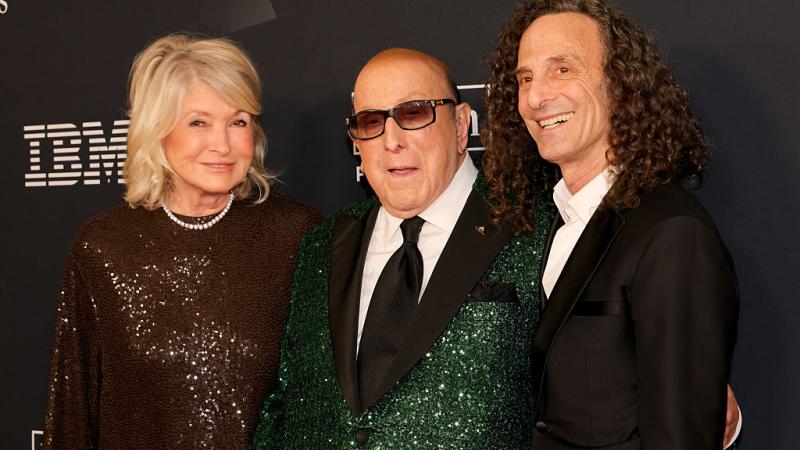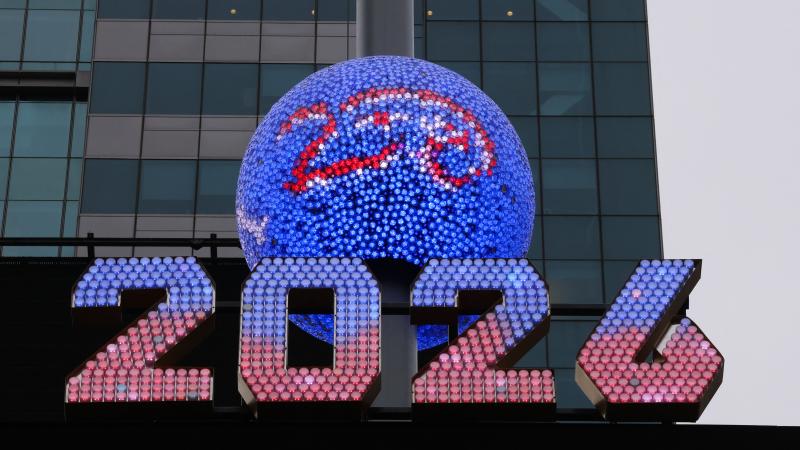Campus 'diversity' training challenged as unconstitutional compelled speech
Civil liberties watchdog FIRE prevails in one of two First Amendment complaints at University of Oklahoma, Rutgers Law School.
Two public universities responded very differently to recent allegations of unconstitutional "compelled speech."
Rutgers University's law school apparently told its student government to ditch a requirement that student organizations host events on critical race theory to be eligible for funding.
The University of Oklahoma, on the other hand, refused to stop requiring faculty and staff, including some graduate students, to complete a diversity training that requires them to say things they don't necessarily believe.
The Foundation for Individual Rights in Education (FIRE), which initiated both complaints, shared portions of the OU training video that it considers unconstitutional with Just the News.
They show that participants are not allowed to move forward in the training until they give a single approved answer to scenarios involving disabilities, gender identity and cultural differences in the workplace.
OU consulted with its software vendor, EverFi, in response to FIRE's complaint that the training amounts to compelled speech. A university spokesperson gave Just the News the same statement it gave the civil liberties group.
The training "does not impose specific ways of thinking, but instead, presents situational examples of how to engage with the broader world in a way that is understanding of all people and perspectives," the statement said. "EverFi's training modules are based on best practices and data gathered by the company's researchers and developers."
While the university claimed it will consider "relevant legislative initiatives" when reviewing the training, it did not mention any constitutional issues the training may raise.
Imposed CRT 'lens' not viewpoint-neutral
The Student Bar Association at Rutgers' law school in Camden, N.J., added a diversity and inclusion section to its constitution last fall.
Any student group seeking funding of $250 or more must plan at least one event "through the lens of Critical Race Theory, diversity and inclusion, or cultural competency," the amendment reads. According to FIRE, 19 of 22 student groups requested more than $250 last fall.
The Federalist Society chapter at the law school claims the policy amounts to compelled speech and "may stifle the establishment of new student organizations" that disagree with CRT or have no position on it, Nick DeBenedetto, president of the right-leaning law student group, told FIRE.
The civil liberties group warned Rutgers President Jonathan Holloway that mandatory student activity fees at a public university must be distributed in a viewpoint-neutral manner regardless of whether a student government is tasked with distribution.
It doesn't matter that student groups can choose their own topics, because being required to use the "lens" of CRT forecloses events that are critical of the theory, FIRE said. The "lens" options for diversity and inclusion and cultural competency also have no objective criteria, it added.
The May 17 letter drew a quick response from the administration, according to an about-face issued by the SBA's current and elected presidents May 23.
SBA leaders met with administrators to discuss alternatives, but "due to the strict deadline" — FIRE requested a response by May 28 — "and the constitutional issues presented," they removed the language entirely.
"We hate the idea of backing down, just because the 'other guys' say so, and we hate that we have to factor in those that oppose measures to foster diversity and inclusion," the letter reads. While they believe they can pass the constitutional amendment "or something similar again," now is not the time to "dig our heels in."
The law school didn't respond to a request to tell Just the News what administrators told SBA leaders, and whether the amendment raised red flags for the law school last fall.
Diversity training compels speech
Like the CRT mandate, the University of Oklahoma's diversity training goes back to last fall. A graduate student who is also a staff member, Elizabeth Owen, took issue with the faculty and staff training and its required correct answers.
In one scenario, where a coworker says he's "tired of all this transgender stuff," she chose the wrong answer: "I agree. Political correctness can be so tiring." The video rewound so she could choose from the remaining two answers.
Just the News viewed a six-minute recording of scenarios from the training that show a person responding to each, some correctly and others incorrectly. "We take issue with any question where the school requires a particular response in order to complete the training," a FIRE spokesperson said.
Five scenarios are text only. Each has three options for answers.
One says coworkers should invite a diabetic employee to happy hour rather than assume he can't eat anything and leave him out. Another says a hiring manager whose department is full of whites and Asians should not hire from an application pool dominated by them, but should ask recruiters to expand their talent pipelines.
A professor who said women scientists have to work harder, because most famous scientists are men, hurt his female students by evoking stereotypes of differences in ability, another scenario concludes.
The video scenarios have multiple parts, each of which must be answered correctly to continue. In the transgender discussion that Owen flubbed, the correct answers are asking the coworker why he's upset and telling him to respect his gender-transitioning colleague's wishes, treat her with dignity and recognize that it took courage for her to speak up.
"Excellent choice!" the scenario ends when answered correctly in full. "By being understanding and neutral you may have helped Michael empathize with Sarah's situation a bit more."
The user answered incorrectly in a scenario where a new employee says he doesn't drink alcohol. When a coworker tells the user the employee's not a good fit in the office culture, the user wrongly answered that they didn't have to invite him to events with alcohol.
"Try again!" the narrator says. The correct answer, after the auto-rewind, is planning some events without alcohol: "Great choice! A commitment to diversity includes making sure social events don't exclusively cater to the majority's cultural preferences and habits."
FIRE told the university in November that requiring users to answer correctly to complete the training was prohibited by a Supreme Court decision against requiring students to salute the American flag. It can constitutionally share its "preferred response" to each scenario without saying users "should" agree.
The civil liberties group also filed a public records request to OU seeking all diversity training materials. It didn't receive a response for the next four months, when OU said FIRE must come to campus to view the online training under the terms of its contract with EverFi.
The university told Just the News it doesn't have a "contractual right to copy, or transmit a copy of the Module." Outside entities are also prohibited from even creating "derivative works based on the training." (FIRE told Just the News the six-minute version it shared is protected by fair use.)
FIRE filed another public records request earlier this month seeking OU's contract with EverFi and any communications between the two since its November letter. A spokesperson said it hasn't received records yet.

